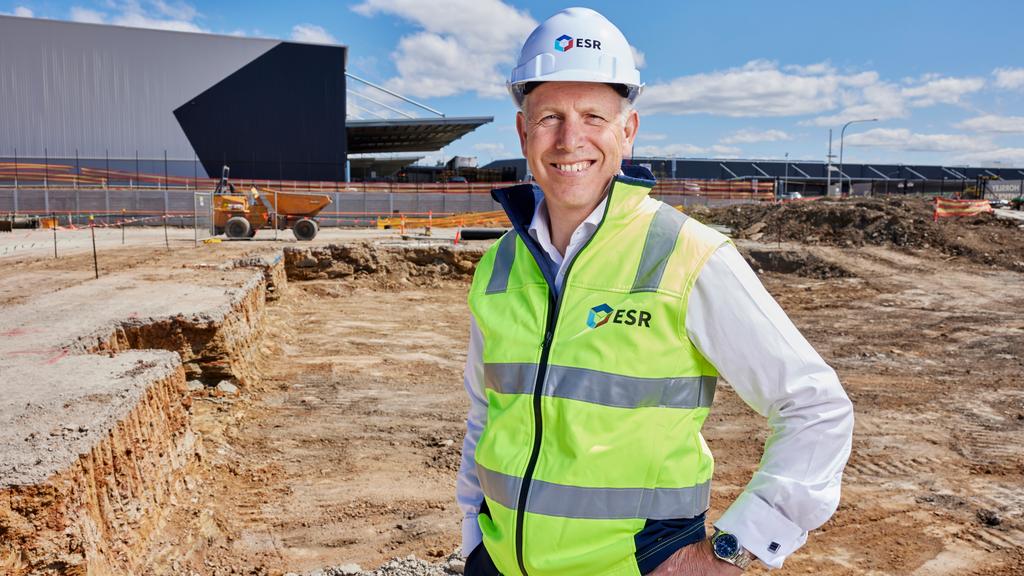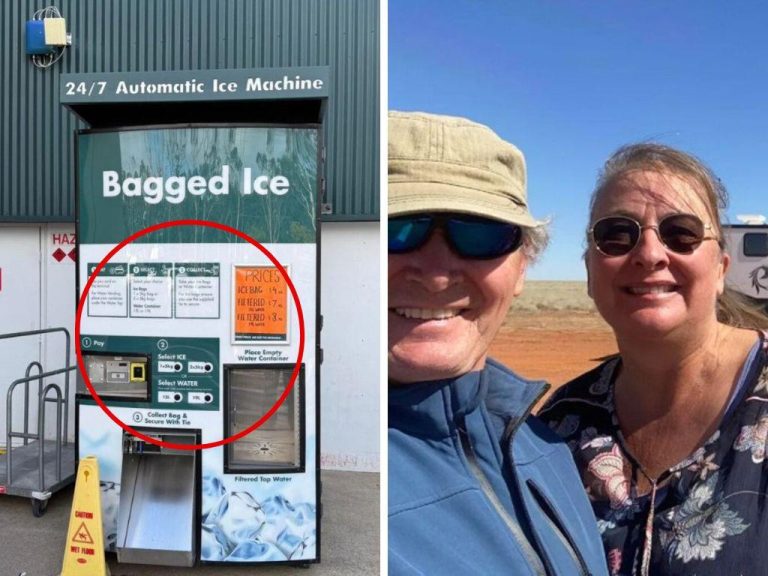Warehouse giant ESR sees an upside for the Asia-Pacific from tariff ructions

Phil Pearce is ESR’s new president, elevated from a post as the group’s deputy chief executive
Asian warehouse giant ESR is one of the more unlikely names in Australian property, with its listed rivals better known.
But after arriving in 2018 it has built an empire that could hit almost $30bn in local industrial and logistics real estate once its sites are fully developed.
The company has just been taken private by a consortium including some of the world’s largest investors – newly appointed company president Australian executive Phil Pearce says they control about $1 trillion worth of assets – and it has big plans after that $10.15bn deal.
However, the move comes amid geopolitical uncertainty and jostling ahead of the 90-day pause in the US “reciprocal” tariffs expiring.
Mr Pearce says that tariffs have made companies uncertain across Asia, where the company operates. ESR delisted from the Hong Kong stock exchange but is invested in developed Asia, with Australia its largest market.
The large companies that make up its customer base paused decision-making earlier in the year. But he said this was starting to change as the implications of tough tariff negotiations flowed through the market. “We do think it is actually probably a net positive for the Asia-Pacific area,” he said.
With China and other Asian nations functioning as the factories of the world, and their goods to become more expensive in the US, Mr Pearce expects them to conversely become cheaper in other markets as US demand falls away. “Potentially, it could … be positive in terms of inflation in the region,” he said.
Uncertainty about the impact of tariff hikes may also hit capital flows into the US due to worries about inflation breaking out in that country.
“Capital is becoming more cautious about investing in the US because of the volatility of the decision making. And we are hearing that there’ll be more capital flowing to Asia,” he said.
That will suit ESR as it manages more than $US150bn in assets across the region. Alongside the veteran Mr Pearce, who led the company into Australia, it has appointed the former global head of Macquarie Asset Management Real Estate Brett Robson as chairman.
The company is bullish about the firepower its backers bring to the table. Its new shareholders include Starwood Capital Group, SSW Partners, Sixth Street, Warburg Pincus, Qatar Investment Authority and ESR’s own founders. Other owners include Canada’s OMERS and Japan’s Sumitomo Mitsui Banking Corporation.
Mr Pearce says the delisted company will be able to undertake strategies that could even hurt earnings in the short term but be “very positive” for long-term value creation.
This could see it spin off more funds from its holdings. “We clearly want to lighten our balance sheet as part of our strategy,” he said. “A clear part of the strategy is to become an asset-light asset manager and that’s something that’s easier to achieve, and we can do it much quickly in the unlisted world.”
The company already manages multiple investment and development funds, including the vehicle that bought the Milestone Logistics portfolio for $3.8bn in 2021. ESR’s takeover of the ARA also gave it control of the Logos fund, which is developing the $4bn Moorebank precinct in Sydney.
ESR has already worked on the recapitalisation of one fund – which brought in fresh Japanese and Malaysian investors last year – and more is expected on this front, along with the potential to bring some vehicles together.
Although some rival developers are struggling to make their big box developments on the outskirts of major cities work, ESR has been ploughing ahead and Kmart has committed to a new $200m fulfilment centre in Sydney’s west at Moorebank. “We have actually noticed inquiry levels picking up over the last couple of months and we are negotiating a couple of significant transactions,” Mr Pearce said.
He said there was more supply coming online, prompting higher competition for tenants, but the company was able to deliver nationally for them.







